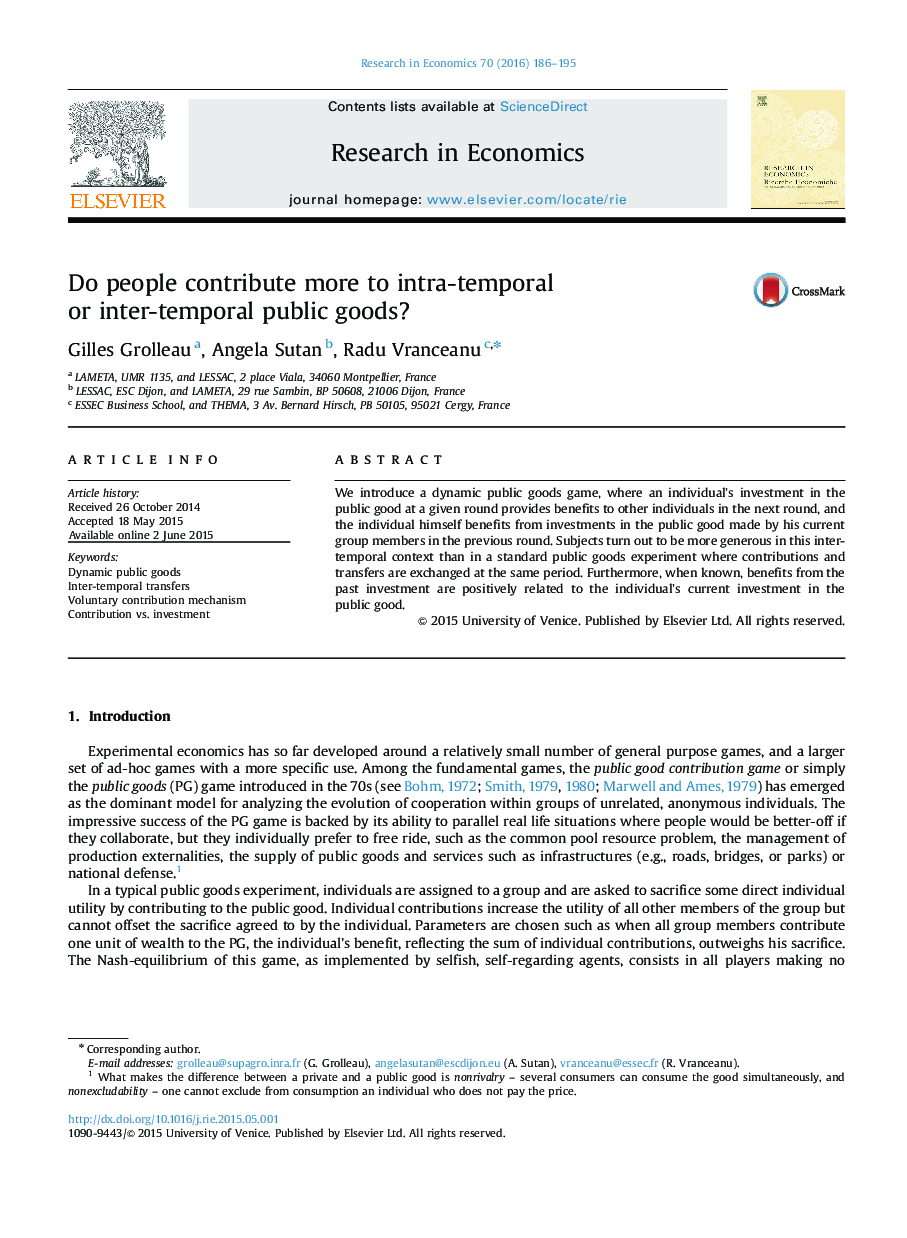| Article ID | Journal | Published Year | Pages | File Type |
|---|---|---|---|---|
| 984535 | Research in Economics | 2016 | 10 Pages |
•The paper analyses a dynamic public goods experiment where contemporary contributions provide benefits to a group of individuals at a later stage.•In this inter-temporal context, contributions are higher than in the standard repeated public goods game with simultaneous contributions and benefits.•Individuals respond to information about what they received from past investments, by contributing more to the public good.
We introduce a dynamic public goods game, where an individual׳s investment in the public good at a given round provides benefits to other individuals in the next round, and the individual himself benefits from investments in the public good made by his current group members in the previous round. Subjects turn out to be more generous in this inter-temporal context than in a standard public goods experiment where contributions and transfers are exchanged at the same period. Furthermore, when known, benefits from the past investment are positively related to the individual׳s current investment in the public good.
